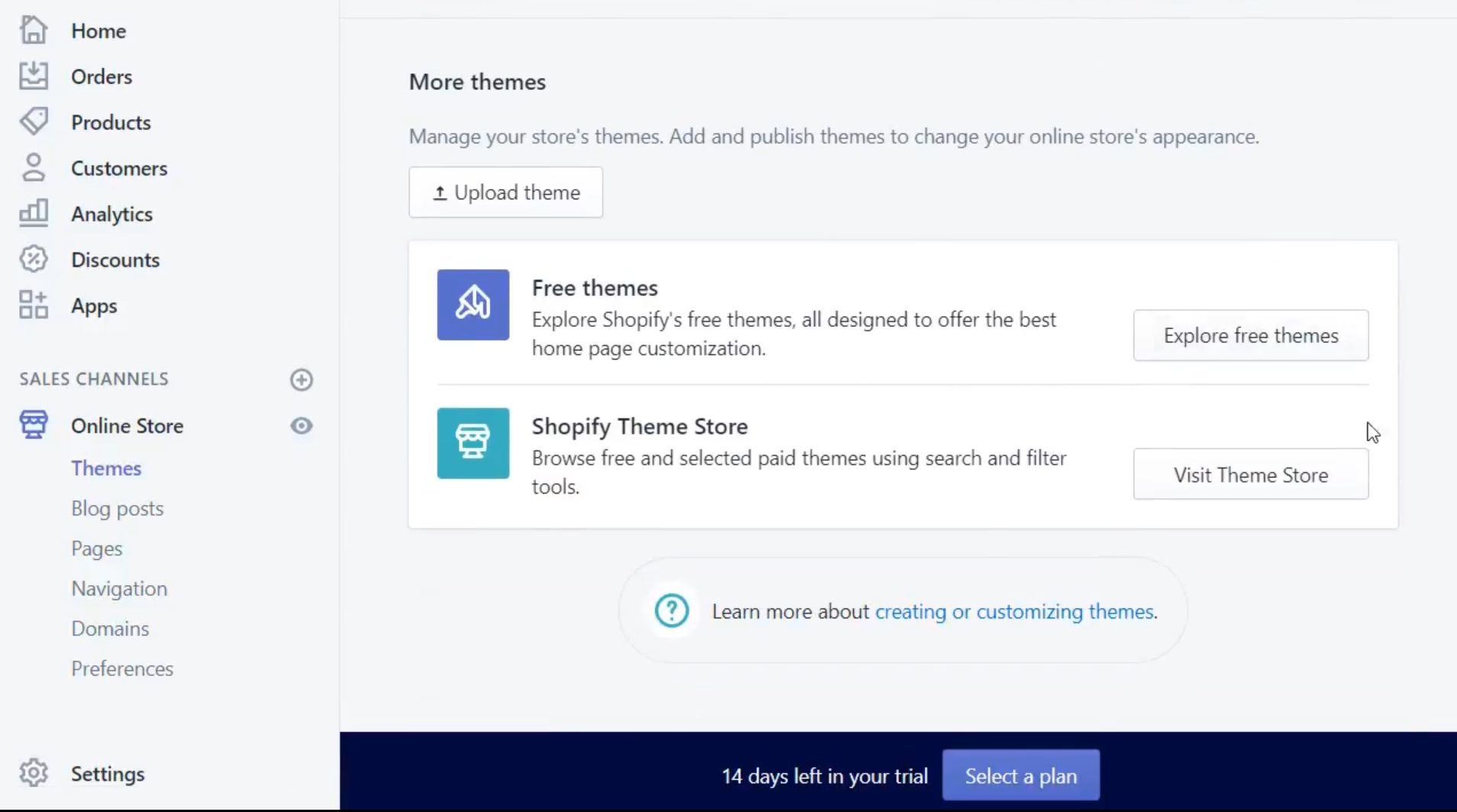While running a brick-and-mortar store is an age-old way to sell your products, the blistering success of ecommerce renders physical stores inadequate to stay in business. Take this figure into consideration: 30% of consumers browse online shops before purchasing products. With this number of digital buyers growing every day, an online presence for your brand can go a long way.
The lingering retail apocalypse suggests that sticking to pure physical stores could be suicidal for your business both in the short– and long-term.
Having a website and leveraging social media marketing strategies can certainly give your brand the exposure it needs. But now, you want to take it a notch higher by selling your products and services online. To start your online business, a shopping cart software is exactly what you need.
This type of software probably sounds unfamiliar to you. You might be wondering what a shopping cart software is and how it works. In this guide, we’ll answer all your questions about this piece of software and walk you through its key features, benefits, examples, and other details.
What Is a Shopping Cart Software?
A shopping cart software is an ecommerce tool that allows web visitors to purchase products or services offered on a website. It is used by online merchants to streamline the web buyer’s experience and make it possible to select, reserve, and store items from a website. A shopping cart tool also handles online payments with payment gateway integrations.
For online merchants, a shopping cart software is an integral part of the business. Several vendors offer this type of software, each providing various features to help you out with your online business. To help you choose the best shopping cart software for your online store, we prepared this buyer’s guide to give you a complete picture of the things to consider when picking one. We’ll discuss which features you must look out for, examples of shopping cart tools, their benefits, and other important details.

Wix is a popular shopping cart platform that lets you customize your ecommerce website.
List of Best Shopping Cart Software
As business owners struggle to stay competitive and reach more online customers, they will find that a shopping cart software is extremely helpful in establishing an online presence. You might have a nice-looking online store to attract more customers, but a reliable and flexible shopping cart system allows you to have more successful conversion rates. Below are some examples of industry-leading shopping cart software.
- Shopify. Shopify provides customizable and responsive themes you can use to create your own ecommerce website. It offers powerful marketing tools, inventory and order management, and analytics to increase your sales. The platform starts at $29/month.
- Magento. Magento is an example of a licensed shopping cart software. It offers robust ecommerce tools such as SEO and order management. It has unlimited customization features, allowing you to design your store in any way you want. Its price starts at $2000/month.
- Woocommerce. Powered by WordPress sites, Woocommerce is a highly customizable shopping cart plugin platform that transforms your site into a nice-looking online store. This tool is built to work seamlessly with WordPress sites. The vendor offers this product for free.
- BigCommerce. BigCommerce provides ecommerce templates to help you build your online store. It has shipping and fulfillment features that allow you to expand to international markets. It also enables you to accept payments from most payment gateway options. The pricing starts at $29.95.
- Wix. Wix is a website builder platform with essential ecommerce features, including product management, custom checkout pages, and mobile optimization. The vendor offers a free version of the software.
- X-Cart. If you’re a startup dreaming to make it big in ecommerce but with a limited budget, it could be hard to look past X-Cart. The free version of this open source program offers a virtual what’s what in shopping cart functionalities. When you’re ready to level up, there’s ample space for any scale you have in mind, with the premium Business plan starting with a license fee of $495.
- Ecwid. Best if you already have an ecommerce website, this web-based application will help you add an online store painlessly. The store builder tool is easy to use, making the creation of catalogs a breeze. You can check out Ecwid’s free version or go for the premium plans, which start at $15 per month for the Venture package.
- 3dCart. A favorite among ecommerce businesses, this shopping cart software is designed to meet the needs of companies of all sizes. Batch editing for inventory control, multiple SEO tools, and excellent CRM features among others lift it among competitions in this software class. You can shoot for the vendor’s free trial, then determine the plan that suits you. You can start with the Basic plan at just $29 per month.
- Pinnacle Cart. This shopping cart software packs a host of other functionalities for your ecommerce business in order to distinguish itself from the pack. Aside from the sterling shopping cart solution, you also get digital marketing, image management, marketing and promotions, and order management among other things. Pinnacle Cart offers a free trial for its 4 pricing schemes, which start with the StartUp plan at $44.95 per month.
- Jimdo. This app is ideal for those who need an ecommerce presence complete with all the functionalities like a shopping cart tool, payment gateways, and SEO tools among others. It’s optimized for mobile too, so running your online business shouldn’t be a hassle even if you’re hopping cities all over the world. Jimdo has both a free plan and a free trial period for the premium packages, which start with $7.50 per month for the Pro Plan.
- Yo!Kart. This is a multi-vendor marketplace software that helps startups and enterprises with agility. It helps them speed up time to market and enter new markets with agile engineering practices. It has four plans that fit the budget and needs of different business sizes, starting from $999 for a one-time, lifetime license. All plans are customizable, white-label, and scalable.

Shopify is an industry-leading shopping cart platform that helps you manage your online business.
Benefits of a Shopping Cart Software
Those who limit their business to walk-in transactions are likely to experience a decrease in their profits. As more people turn to online shopping for convenience, the only way to stay in the game is to make your products available online. Using a shopping cart software easily helps you bridge the gap between your store and your customers. Without an online storefront, you lose the opportunity to reach more customers and increase your sales.
As online shopping becomes the new norm, merchants take their stores to the web with the help of a shopping cart software. It allows web buyers to easily browse product descriptions, select items, and make purchases directly from a website. On the merchant’s side of the axis, it streamlines payment processes and serves as a gateway for order, catalog, and order management.
Just as there are two sides to every story, the benefits of a shopping cart software can be viewed from two perspectives: the online retailer’s and the web buyer’s.
Benefits of a shopping cart software to customers:
- Safe shopping experience
- More payment options
- View more detailed product descriptions
- Save items and return at a later date
- Express checkout
- Track orders in real-time
Benefits of a shopping cart software to business owners:
- Engage with more customers to improve sales
- Secure and hassle-free payment transactions
- Collect customer behavior information
- Manage real-time inventory
- Improve customer loyalty
- Can be integrated with other business applications
- Technical support from the software vendor
Types of Shopping Cart Software
Another important thing to consider is the type of shopping cart software that would best suit your business needs. Industry experts narrowed down the different types of shopping cart software into two–hosted and licensed shopping carts. Both have their fair share of advantages and disadvantages. In recent years, however, hosted shopping carts are getting way ahead of the competition. The following is a detailed comparison of the two:
Licensed shopping cart software
Basically, a licensed shopping cart software is hosted on the merchant’s own servers or at a hosting company. This type of shopping cart is usually an open-source platform, allowing you to customize its features with greater flexibility and add third-party applications as necessary. While it offers rich functionalities, it requires more technical expertise and can be more expensive. Most licensed shopping cart tools usually offer enterprise-level features.
Advantages
- Highly customizable and scalable
- Most are open-source
- Unlimited bandwidth, storage, and products
- Installations can be tailored to your needs
- Cross-channel capabilities
- Can easily be transferred to another host
Disadvantages
- More expensive
- Complex and longer installation time
- Requires advanced coding skills
- Consistent system updates and patches
- Demanding design and development
Hosted shopping cart software
A hosted shopping cart software is the choice of most online merchants for several reasons. First, it is usually more affordable and easy to use. Plus, it runs on the software vendor’s servers, which means the system can easily be installed and updated without requiring extensive technical skills. Hosted shopping carts are usually optimized as well, with a straightforward user interface for the customer’s ease of use.
Advantages
- Easier installation and implementation
- Hosting included
- More affordable initial fees
- Technical support by software vendors
- Updated systems
Disadvantages
- Limited customization features
- Recurring add-on fees
- Complex pricing models
- Can’t transfer to another host
- Higher long-term costs

BigCommerce allows you to showcase your products in any web design and layout that match your brand.
Key Features of a Shopping Cart Software
A shopping cart software acts pretty much like a physical grocery cart. It lets you add as many items to your cart until you decide to proceed to checkout. However, a shopping cart software serves more functions than its physical counterpart. The following is a list of key features you must consider when looking for this type of software.
Store builder
Most shopping cart platforms have store builder tools that allow you to create your own ecommerce website. They provide design and customization tools that you can use to personalize your website. By using interactive and strategic layouts, you can engage with your customers and have higher conversion rates.
Product selection
The shopping cart icon found in online stores is one of the most important features your customers can use. With it, they can simply select the items they want and add them to their cart. At a later time, they can preview the preselected items, add quantities, select variations, or remove the ones they will not purchase. Most shopping cart platforms provide a display that shows the number of items customers have on their cart and the running total of all the items.
Tax calculations
A tax calculation tool that automatically collects taxes is important to your online store. As an online merchant, your customers will come from different parts of the world. This makes it harder to keep up with the tax rates in various states, cities, or countries. With a tax calculation feature, your shopping cart software enables you to handle tax collections according to each location’s tax requirements.
Shipping calculation
Generally, there are two types of shipping calculations used in shopping cart platforms. One type is set by the merchants, and the other is a real-time calculation based on the shipping rates of major couriers and shippers. Some shopping cart platforms also allow you to offer free shipping, which helps you retain customers and decrease cart abandonment.
Secure transactions
When choosing a shopping cart software, make sure that it provides the following: an SSL connection between the shopper and your website, a payment gateway, encryption of credit card numbers, and a secure order retrieval. These elements ensure safe online transactions for your ecommerce operation.
Potential Issues
Shopping cart abandonment
Shopping cart abandonment refers to how a potential customer proceeds to the checkout process and then leaves the site before completing the payment transactions. This is the most common issue faced by online retailers. One reason customers abandon their carts is because of complicated payment processing. To prevent this from happening, make sure that your checkout procedure is quick and simple.
Low traffic
Having low traffic on your online store is a bad sign for business. Consider implementing marketing strategies to give your brand more exposure on the web. For instance, you can offer discounts to your products when customers share the link to your site on their social media accounts. You can also use SEO tools to improve your ranking on search engines and make it easier for people to find you on the web.
Other Factors to Consider in Choosing Shopping Cart Software
Cost
The cost of implementing a shopping cart software usually plays a crucial role in deciding to get one. Let’s face it: the design and development costs of your ecommerce site do not come cheap. Plus, the more ecommerce functions you need, the more fees you will need to pay. Vendors usually offer various pricing plans, so make sure to check each of their inclusions. This way, you’ll be able to see if you have all the features you need at a fair cost.
Payment options
Usually, shopping cart software vendors offer two payment options. Either you pay for a one-time fee upfront, or you pay the monthly costs depending on your storage needs and the number of products you have.
Scalability
As your online store grows, you will also need to expand your inventory, payment options, and shipping capabilities. Before choosing a shopping cart software, it’s important to consider its scalability. Remember that most hosted solutions have limited functionalities based on their pricing plans. A licensed shopping cart is a great option if you need a more flexible platform. However, it can be more demanding of technical skills, and its hosting fees are more expensive compared to hosted shopping carts.
Latest Trends in Online Shopping
Online shopping is a trend in itself that’s likely to stay in the years ahead. Industry experts predict that ecommerce businesses will continue to grow steadily. To ensure that your online store can keep up with the race, here are some trends and developments that you can take advantage of:
- Green consumerism. Studies show that Millenials and Gen Z consumers are more likely to purchase from brands that support environmentally friendly practices. And with these two target markets owning a tremendous amount of buying power, brands try to attract them with products made from eco-friendly materials and sustainable practices.
- Mobile shopping. Mobile commerce has been seeing immense growth in the past few years. According to Statista’s latest statistics, about 73% of ecommerce sales will happen via mobile devices by the end of 2021. Thus, optimizing your online store for mobile devices can allow more customers to access your site from any location and any device they are using.
